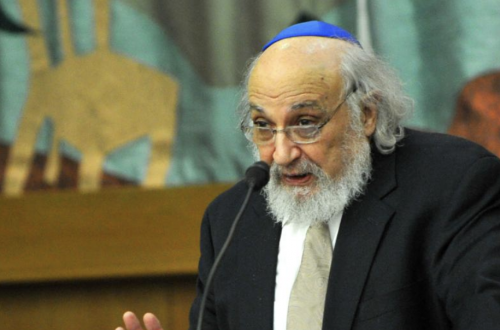This is a cross-post by Sam Westrop from The Algemeiner
Every week, hate preachers on British universities glorify terror, vindicate those guilty of murder and encourage misogynist, anti-Jewish and anti-homosexual sentiment. An increasing number of Jewish students are trivialising this problem and societal opinion is one of indifference and deliberate ignorance. However, open glorification of Nazism and a broken nose can finally provoke comment. Comment, but not outrage – at least, not genuine outrage.
The broken nose belongs to a Jewish student, who objected to the playing of a Nazi-themed drinking game at which players, also students, arranged cards in a swastika shape while shouting ‘Heil Hitler’. The students, all from the London School of Economics (LSE) then turned upon the Jewish student after he objected to this deplorable behaviour, and his nose was broken.
This is the old, overt anti-Semitism found in the indifferent student, and especially the student Conservative. Student Conservatives seem all too willing to embrace this expected role, and fulfill a number of both ludicrous and condemnable actions. On the one hand, there is the somewhat harmless but rather hackneyed behaviour of idolising the Bullingdon Club ethos and binge drinking on fine sherry; all the way to pompously idolising and diminishing the terrors of Nazism under the pretext of humour.
The instance at LSE is not a particularly unusual occurrence. In the past few months, excessively vulgar Oxford Conservatives have been caught singing Nazi-themed songs, and Tory MP Aidan Burley quite happily attended a stag party where his friends were dressed up as Nazis – with little objection from Burley at the time.
The LSE students’ union has promised that disciplinary action will be taken over the card game. Glorification of Nazism is still taboo, but one that is being increasingly broken. However, the cries of Abdul Bari Atwan as he accused Jewish students of being responsible for the murder of the people in Gaza provoked little outrage; for unlike the crapulent brazenness of the card-playing students, here is a man who is a putative champion of the Palestinian people.
Thus far, there has been a dichotomy – those who are truly concerned with the rise of extremism and hate speech in our universities can separate the problem into two parts: there is the subversive and well-organised bigotry of the Islamists, supported by the Left for the sake of reaction; and there is the traditional, thuggishly blunt anti-Semitism of the right. Until recently, many of those who have concerned themselves with the questions of justice, equality and human rights have ignored – and frequently supported – the actions of the former; while the much more easily condemnable and bombastic bigotry of the Right have been more properly criticised.
But the Right is becoming increasingly diluted and unprincipled. The once keen-felt support of Israel is dissipating, and organisations such as Conservatives for Israel (CFI) spend most of their time apologising for anti-Israel sentiment, and even anti-semitism; rather than actually supporting her and fighting the disease of Jew-hatred. After Aidan Burley attended that stag party, Stuart Polak, chairman of CFI, stated:
“I have worked closely and travelled to Israel with Aidan Burley. I know him well and he does not have an antisemitic bone in his body.”
The dichotomy is starting to blur, and as each new instance of bigoted action occurs, whether it be the product of determined hatred or vulgar dispassion, the societal response to the mistreatment of Jews is increasingly articulated by this thought: those hysterical Jews, complaining as usual and calling everyone anti-Semitic. Or as Gerald Kaufman MP put it recently: “Here we are, the Jews again.”
The fight against extremism is all taking a perilous turn for the worse. The politically-sanitised anti-Semitism of anti-Zionism and the manifest support for supremacist Islamism is now complimenting and driving the unvarnished disdain for Jews found in the Right. The synergism of the two is the future for British Jewry – it doesn’t look good.
There is such intense shame, therefore, in the choice of British establishment Jews to live such lives of deliberate incognizance and carefully prescribed denial. Dan Sheldon, the Union of Jewish Students campaigns officer, tweeted in response to the Daily Telegraph’s description of LSE as ‘Britain’s most anti-Semitic University’ that:
“As a (Jewish) former LSE governor and student leader, I can categorically state that @telegraph’s claim that LSE is antisemitic is balls.”
This is the same organisation that last year released a statement, with the support of the British ambassador to Israel, opining that the notion of universities being “hotbeds of anti-Israel sentiment” was false.
Surely, UJS’s job should, if anything, be to over emphasize the problem of anti-Jewish feeling; rather than downplay it and thus exonerate the universities where such hatred has spread so perniciously.
Similarly, Jewish Societies and even Israel Societies are increasingly run by students who favour obsessive criticism of Israel as a means to appease the anti-Jewish and anti-Israel movements; and to simultaneously sterilise themselves of the accusation of ‘Zionism’.
For example, SOAS Israel Society is running an event on the efficacy of the boycott movement with speakers including Raed Saleh-supporter Ilan Pappe, anti-Israel bashers such as Dr. John Chalcraft and Hannah Weisfeld, and one-state advocate Dimi Reider. The society states it was set up “for open and critical discussion of Israel.” You can get the feel of the group’s ideological premise from its website.
Only a few weeks ago, I was invited to speak at UCL for the Debating Union. A few days before the event, I was emailed by the organiser who told me that my invitation was revoked due to ‘increased vigilance over speakers”. In other words: I was considered an extremist. The event took place, with all the other invited speakers allowed to appear, all of whom were rabidly anti-Israel, including the ‘liberal’ imam Taj Hargey, who stated that Gaza was like the Warsaw Ghetto and that the Jews were akin to the Nazis.
I am considered an extremist compared to this?
One Jewish Yachad member stood up at the end and praised the ‘consensus of argument’ – a paradox that strikes me as a frightening harbinger for future discourse.
A final example: a rather hysterical Jewish student called Darren Cohen, who runs the KCL Jewish Society, recently described my Muslim and Jewish colleagues as “fascists” because of our belief that there should be no compromise with far-Right and far-left hate speakers and anti-Israel bigots. Such demagogic rhetoric reminds me instantly of Arab dictators describing every rival or failed coup as having ‘Zionist influence’; or the murderous Stalin and the British far-Left blaming all their woes and dislikes on ‘fascism’ or ‘imperialism’.
Combine the banality of evil with the banality of unadulterated stupidity and one achieves a very potent promise of harm. This is all too familiar to the bonafide anti-fascist activists who are working hard to fight the terrifying rise in anti-Jewish and anti-Israel sentiment.
In the 1930s, the British far-Left, working with pro-appeasement politicians within both the Conservative and Labour parties encouraged submission to Hitler, because, as one politician put it, anything is better than war. A terrifying parallel can be observed with today, as both the Left and Right, supported by a variety of Jewish organisations, trivialise the threat of religious supremacism and deny the disease of anti-semitism that threatens to visit violence on Jewish students – targeting all, regardless of whether they want to appease their tormentors or not.

